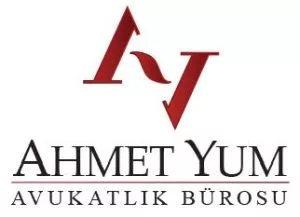Enactment of Law No: 6361 regulates an effective financing opportunity already known as “sale and leaseback”.
Through this transaction, the entity sells its owned property to a financial institution whilst leasing the property back for a certain term; thereby not only acquires the right of use on the property subject to leasing but also meets long-term funding needs. In other words, the entity selling the property in a sale and leaseback transaction assumes the roles of both the Seller and the Lessee.
Sale and leaseback transactions have been encouraged by some tax and duty exemptions:
Stamp Duty Exemption;
Pursuant to the first paragraph of Article 37 of Law No: 6361, financial leasing contracts and the documents concerning the transfer and amendment thereof as well as the documents issued to constitute collateral to these contracts shall be exempt from stamp duty and the transactions realized based on these documents shall be exempt from duties.
Title Deed Fee Exemption;
According to the second paragraph of Article 37 of Law No: 6361; a transaction where a property, which was leased to the lessee in accordance with a lease contract through a sale and leaseback transaction, is thereupon registered to the title deed in the name of the lessee at the end of the lease term shall be exempt from any title deed fees.
On the other hand, 4.55 per thousand title deed fee shall be charged (as indicated in subparagraph 20-G of Tariff No. 4 entitled Title Deed Transactions), in accordance with Fees Law No: 492, while the property subject to a sale and leaseback transaction is sold by the Lessee to the financial leasing company.
Corporation Tax Exemption;
All of the gains arising from the sale of the property to financial leasing companies for the purpose of leasing it back on condition to acquire the ownership at the end of the lease term as well as the transfer of the property by the financial leasing company to the selling entity shall be exempt from corporation tax.
VAT exemption;
Exemption of VAT only applicable to transactions where financial leasing companies, participation banks, and development and investment banks purchase all kinds of movable and immovable properties directly from the lessee and lease them back provided that the ownership will be transferred to the lessee at the end of the lease term.
In conclusion;
The sale and leaseback method is frequently applied by entities to generate funding. The transaction provides long-term funds through idle assets owned by entities, furthermore, tax advantages contribute to the development of the system.
References
- Financial Leasing, Factoring and Financing Companies Law No. 6361
- Fees Law No: 492 Tariff No. 4
- Law No. 6495, Art. 29
- Value Added Tax Law No. 3065
The content of this article is intended to provide a general guide to the subject matter. Specialist advice should be sought about your specific circumstances.


